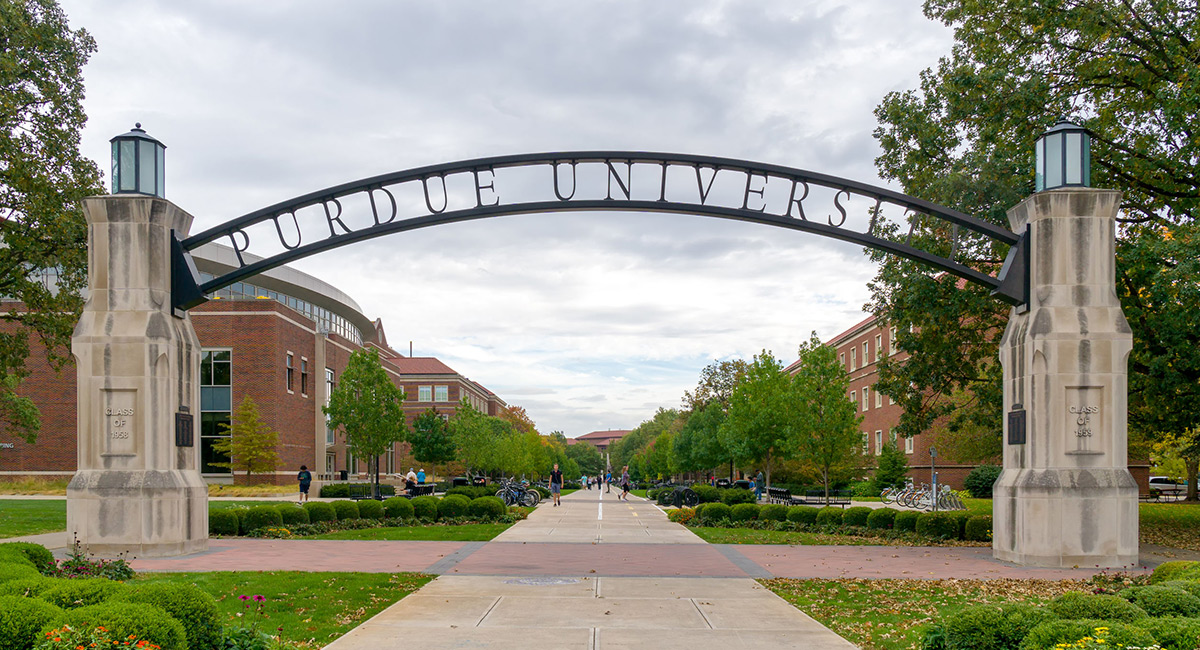Three universities recently have responded to the current zeitgeist with wildly diverse actions designed to confront problems facing their campuses and contemporary America.
Purdue University
America arguably is the most disunited it has been since the Civil War. People exhibit uber-partisanship, an unhealthy intolerance and contempt for those who act, think and even look different than themselves or some perceived ideal. The George Floyd murder and aftermath, violence at the Capitol, and Congressional leaders showing hatred and contempt for one another are manifestations of this.
Why is this so? At least part of the answer, I think, is that Americans are increasingly ignorant of their common heritage, of the things that have so magnificently bound us together over the past quarter of a millennium, of the things explaining our great material and moral success as a people. Civic literacy in the U.S. is at a low point: Americans increasingly are ignorant of great leaders of the past and of the laws that bind us together as people (e.g., our Constitution). Purdue University wants to do something about it, and is imposing a civic literacy requirement on its incoming students. Graduates of Purdue will be expected to be at least moderately knowledgeable about our important civic institutions and their evolution.
Purdue is a fine community of many scholars and thinkers, but somehow I see president Mitch Daniels behind all of this. President Daniels is the closest thing I know to an academic secular saint, whose innovations such as a long term tuition freeze, Purdue Global online education, and innovative income share agreements to finance college are highly praiseworthy.
Howard University
Howard University, facing budgetary constraints, recently announced it is ending its Classics Department. Howard is not unique in this—other schools have downplayed or even stopped providing instruction in Latin, Greek, ancient history, etc. It is particularly lamentable in this case, however, since I believe Howard is the only historically Black college or university still having a classic department. Its demise is a consequence, I think, of a broader American affliction: people increasingly think most of the wisdom we possess somehow occurred in the present generation. Anything said or done a couple thousand years ago is irrelevant and redundant, not part of our core academic mission.
Reacting to the Howard decision, famed Harvard black philosopher Cornel West along with Jeremy Tate expressed it well recently in the Washington Post: “Academia’s continual campaign to disregard or neglect the classics is a sign of spiritual decay, moral decline and a deep intellectual narrowness running amok in American culture.” They point out Martin Luther King cited Socrates not once but three times in his famed “Letter from Birmingham Jail.” Turning your back on the classics is rejecting the learning that inspired and helped mold such black leaders as Frederick Douglass and Dr. King.
The University of Texas at Austin
On April 14, the University at Texas at Austin (UT) announced a “Strategic Plan for Faculty Diversity, Equity, and Skills,” a revision of an earlier draft proposal that drew heavy criticism from such groups as the National Association of Scholars (NAS) and the Foundation for Individual Rights in Education (FIRE). FIRE already had ranked UT dead last among public schools in a survey of school free speech policies. From what I read, the NAS characterization of the new version of policy (“Orwellian”) seems on target. The school was already rather seriously excoriated by the U.S. Court of Appeals for the Fifth Circuit last fall for its woke/politically correct policies clearly inconsistent with the First Amendment to the Constitution.
An intellectual property rights lawyer and UT grad, Louis K. Bonham, has worked hard to publicize UT’s misdeeds, its attempts to brainwash its faculty and require fealty to a “diversity” agenda that appears to me to be perversely the antithesis of the most important diversity of all: the right to speak one’s opinions no matter how unpopular they may be. Can NAS, FIRE, and alums like Mr. Bonham prevail ultimately in court over UT’s administration led by Jay Hartzell? Or, will the UT Board of Regents, state legislature and/or Governor Greg Abbott be forced to intercede to try to instill peace and sanity? Time will tell.












